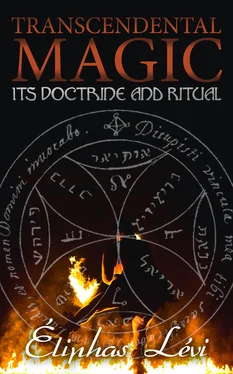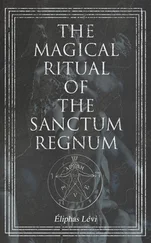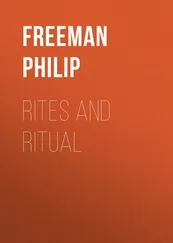Did they offer a shameful salutation to the buttocks of the goat of Mendes? What was actually this secret and potent association which imperilled Church and State, and was thus destroyed unheard? Judge nothing lightly; they are guilty of a great crime; they have exposed to profane eyes the sanctuary of antique initiation.
They have gathered again and have shared the fruits of the tree of knowledge, so that they might become masters of the world. The judgement pronounced against them is higher and far older than the tribunal of pope or king: “On the day that thou eatest thereof, thou shalt surely die,” said God Himself, as we read in the Book of Genesis.
What then is taking place in the world, and why do priests and potentates tremble? What secret power threatens tiaras and crowns? A few bedlamites are roaming from land to land, concealing, as they say, the Philosophical Stone under their ragged vesture. They can change earth into gold, and they are without food or lodging! Their brows are encircled by an aureole of glory and by a shadow of ignominy! One has discovered the universal science and goes vainly seeking death to escape the agonies of his triumph: he is the Majorcan Raymond Lully. Another heals imaginary diseases by fantastic remedies, belying beforehand that proverb which enforces the futility of a cautery on a wooden leg: he is the marvellous Paracelsus, always drunk and always lucid, like the heroes of Rabelais. Here is William Postel writing naively to the fathers of the Council of Trent, proclaiming that he has discovered the absolute doctrine, hidden from the foundation of the world, and is longing to share it with them. The Council heeds not the maniac, does not vouchsafe to condemn him, but proceeds to examine the grave questions of efficacious grace and sufficing grace. He whom we behold perishing poor and abandoned is Cornelius Agrippa, less of a magician than any, though the vulgar persist in regarding him as a more potent sorcerer than all because he was sometimes a cynic and mystifier. What secret do these men bear with them to their tomb? Why are they wondered at without being understood? Why are they condemned unheard? Why are they initiates of those terrific secret sciences of which the Church and society are afraid? Why are they acquainted with things of which others know nothing? Why do they conceal what all men burn to know? Why are they invested with a dread and unknown power? The occult sciences! Magic!These words will reveal all and give food for further thought! De omni re scribili et quibusdum aliis .
But what, as a fact, was this Magic? What was the power of these men who were at once so proud and so persecuted? If they were really strong, why did they not overcome their enemies? But if they were impotent and foolish, why did people honour them by fearing them? Does Magic exist? Is there an occult knowledge which is in truth a power and works wonders comparable to the miracles of authorized religions? To these two palmary questions we make answer by an affirmation and a book. The book shall justify the affirmation, and the affirmation is this: There was and there still is a potent and real Magic; all that is said of it in legend is true after a certain manner, yet – contrary to the common course of popular exaggeration – it falls below the truth. There is indeed a formidable secret, the revelation of which has once already transformed the world, as testified in Egyptian religious tradition, summarized symbolically by Moses at the beginning of Genesis. This secret constitutes the fatal Science of Good and Evil, and the consequence of its revelation is death. Moses depicts it under the figure of a Tree which stands in the midst of the Terrestrial Paradise, is in proximity to the Tree of Life and is joined at the root thereto. At the foot of this tree is the source of the four mysterious rivers; it is guarded by the sword of fire and by the four symbolical forms of the Biblical sphinx, the Cherubim of Ezekiel . . . . Here I must pause, and I fear that already I have said too much. I testify in fine that there is one sole, universal and imperishable dogma, strong as supreme reason; simple, like all that is great; intelligible, like all that is universally and absolutely true; and this dogma is the parent of all others. There is also a science which confers on man powers apparently superhuman. They are enumerated thus in a Hebrew manuscript of the sixteenth century:
“Hereinafter follow the powers and privileges of him who holds in his right hand the Clavicles of Solomon, and in his left the Branch of the Blossoming Almond.  ALEPH. – He beholds God face to face, without dying. and converses familiarly with the seven genii who command the entire celestial army.
ALEPH. – He beholds God face to face, without dying. and converses familiarly with the seven genii who command the entire celestial army.  BETH. – He is above all griefs and all fears.
BETH. – He is above all griefs and all fears.  GHIMEL. – He reigns with all heaven and is served by all hell.
GHIMEL. – He reigns with all heaven and is served by all hell.  DALETH. – He rules his own health and life and can influence equally those of others.
DALETH. – He rules his own health and life and can influence equally those of others.  HE. – He can neither be surprised by misfortune nor overwhelmed by disasters, nor can he be conquered by his enemies.
HE. – He can neither be surprised by misfortune nor overwhelmed by disasters, nor can he be conquered by his enemies.  VAU. – He knows the reason of the past, present and future.
VAU. – He knows the reason of the past, present and future.  ZAIN. – He possesses the secret of the resurrection of the dead and the key of immortality.
ZAIN. – He possesses the secret of the resurrection of the dead and the key of immortality.
Such are the seven chief privileges, and those which rank next are these:
 CHETH. – To find the Philosophical Stone.
CHETH. – To find the Philosophical Stone.  TETH. – To possess the Universal Medicine.
TETH. – To possess the Universal Medicine.  IOD. – To know the laws of perpetual motion and to prove the quadrature of the circle.
IOD. – To know the laws of perpetual motion and to prove the quadrature of the circle.  CAPH. – To change into gold not only all metals but also the earth itself, and even the refuse of the earth.
CAPH. – To change into gold not only all metals but also the earth itself, and even the refuse of the earth.
 LAMED. – To subdue the most ferocious animals and have power to pronounce those words which paralyse and charm serpents.
LAMED. – To subdue the most ferocious animals and have power to pronounce those words which paralyse and charm serpents.  MEM. – To have the ARS NOTORIA which gives the Universal Science.
MEM. – To have the ARS NOTORIA which gives the Universal Science.  NUN. – To speak learnedly on all subjects, without preparation and without study.
NUN. – To speak learnedly on all subjects, without preparation and without study.
These, finally, are the seven least powers of the Magus:
 SAMECH. – To know at a glance the deep things of the souls of men and the mysteries of the heart s of women.
SAMECH. – To know at a glance the deep things of the souls of men and the mysteries of the heart s of women.  AYIN. – To force Nature to make him free at his pleasure.
AYIN. – To force Nature to make him free at his pleasure.  PE. – To foresee all future events which do not depend on a superior free will, or on an undiscernible cause.
PE. – To foresee all future events which do not depend on a superior free will, or on an undiscernible cause.  TSADE. – To give at once and to all the most efficacious consolations and the most wholesome counsels.
TSADE. – To give at once and to all the most efficacious consolations and the most wholesome counsels.  KOPH. – To triumph over adversities.
KOPH. – To triumph over adversities.  RESH. – To conquer love and hate.
RESH. – To conquer love and hate.  SHIN. – To have the secret of wealth, to be always its master and never its slave. To enjoy even poverty and never become abject or miserable.
SHIN. – To have the secret of wealth, to be always its master and never its slave. To enjoy even poverty and never become abject or miserable.
Читать дальше

 ALEPH. – He beholds God face to face, without dying. and converses familiarly with the seven genii who command the entire celestial army.
ALEPH. – He beholds God face to face, without dying. and converses familiarly with the seven genii who command the entire celestial army.  BETH. – He is above all griefs and all fears.
BETH. – He is above all griefs and all fears.  GHIMEL. – He reigns with all heaven and is served by all hell.
GHIMEL. – He reigns with all heaven and is served by all hell.  DALETH. – He rules his own health and life and can influence equally those of others.
DALETH. – He rules his own health and life and can influence equally those of others.  HE. – He can neither be surprised by misfortune nor overwhelmed by disasters, nor can he be conquered by his enemies.
HE. – He can neither be surprised by misfortune nor overwhelmed by disasters, nor can he be conquered by his enemies.  VAU. – He knows the reason of the past, present and future.
VAU. – He knows the reason of the past, present and future.  ZAIN. – He possesses the secret of the resurrection of the dead and the key of immortality.
ZAIN. – He possesses the secret of the resurrection of the dead and the key of immortality. TETH. – To possess the Universal Medicine.
TETH. – To possess the Universal Medicine.  IOD. – To know the laws of perpetual motion and to prove the quadrature of the circle.
IOD. – To know the laws of perpetual motion and to prove the quadrature of the circle.  LAMED. – To subdue the most ferocious animals and have power to pronounce those words which paralyse and charm serpents.
LAMED. – To subdue the most ferocious animals and have power to pronounce those words which paralyse and charm serpents.  MEM. – To have the ARS NOTORIA which gives the Universal Science.
MEM. – To have the ARS NOTORIA which gives the Universal Science.  NUN. – To speak learnedly on all subjects, without preparation and without study.
NUN. – To speak learnedly on all subjects, without preparation and without study. SAMECH. – To know at a glance the deep things of the souls of men and the mysteries of the heart s of women.
SAMECH. – To know at a glance the deep things of the souls of men and the mysteries of the heart s of women.  AYIN. – To force Nature to make him free at his pleasure.
AYIN. – To force Nature to make him free at his pleasure.  PE. – To foresee all future events which do not depend on a superior free will, or on an undiscernible cause.
PE. – To foresee all future events which do not depend on a superior free will, or on an undiscernible cause.  TSADE. – To give at once and to all the most efficacious consolations and the most wholesome counsels.
TSADE. – To give at once and to all the most efficacious consolations and the most wholesome counsels.  KOPH. – To triumph over adversities.
KOPH. – To triumph over adversities.  RESH. – To conquer love and hate.
RESH. – To conquer love and hate.  SHIN. – To have the secret of wealth, to be always its master and never its slave. To enjoy even poverty and never become abject or miserable.
SHIN. – To have the secret of wealth, to be always its master and never its slave. To enjoy even poverty and never become abject or miserable.










